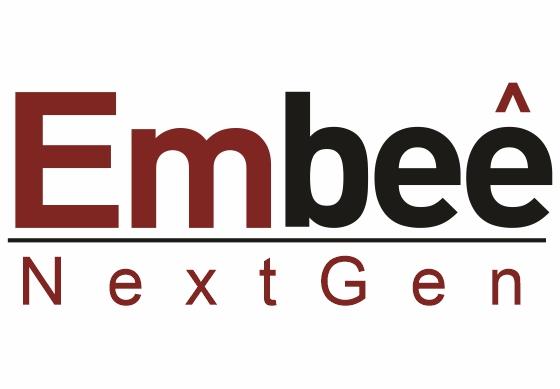In today’s fast-paced business environment, efficiency and cost-saving are paramount for maintaining a competitive edge. Traditional accounting systems, with their reliance on on-site servers and manual processes, often fall short in meeting the demands of modern businesses. Enter cloud accounting: a revolutionary approach that leverages the power of the internet to streamline financial management.
Cloud accounting has emerged as a game-changer, offering businesses real-time access to financial data, enhanced collaboration among team members, and significant reductions in IT costs. This innovative approach not only simplifies financial operations but also provides the scalability and flexibility necessary to support business growth. With cloud accounting, companies can automate routine tasks, ensure data accuracy, and make informed decisions based on up-to-the-minute information.
At Embee NextGen, we specialize in offering comprehensive cloud accounting solutions tailored to your business needs. Our cutting-edge technology and expert support ensure that your financial data is secure, accessible, and always up-to-date. Contact Embee NextGen today to streamline your accounting processes and save both time and money.
1. Real-Time Access to Financial Data
Cloud accounting offers unparalleled accessibility, allowing you to access your financial data anytime, anywhere. This real-time access ensures you always have the most up-to-date information at your fingertips. Immediate access to accurate financial data enables better decision-making, as you can quickly analyze your financial health, track expenses, and forecast future trends.
Real-time access also means that financial data can be updated instantly, allowing business owners and financial managers to respond promptly to changing conditions. This can be crucial for making strategic decisions, such as adjusting budgets, planning for future expenditures, or identifying cost-saving opportunities. Moreover, having up-to-date data helps in meeting compliance requirements and preparing accurate reports for stakeholders. For instance, businesses planning for long-term investments should consider exploring opportunities in Investment in Australia to diversify their portfolios.
2. Enhanced Collaboration
Effective financial management requires seamless collaboration among team members. Cloud accounting facilitates this by allowing multiple users to access and work on financial data simultaneously, regardless of their location. This is particularly beneficial for businesses with remote teams or multiple offices.
Enhanced collaboration means that accountants, managers, and other stakeholders can work together in real-time, improving efficiency and reducing the likelihood of errors. For example, accountants can update entries while managers review financial reports simultaneously, leading to quicker approvals and more informed decisions. This level of collaboration can also streamline processes such as month-end closings, audits, and tax preparations, ensuring that all relevant parties are on the same page. For businesses considering the flexibility of Outsource Accounting Services, cloud accounting can provide seamless integration and efficient workflow management.
3. Reduction in IT Costs
Traditional accounting software often requires substantial investment in IT infrastructure and ongoing maintenance. Cloud accounting eliminates these costs by hosting your financial data on secure, remote servers. This not only reduces IT expenses but also frees up resources that can be better spent on core business activities.
By using cloud accounting, businesses can avoid the costs associated with purchasing and maintaining servers, managing software updates, and handling data backups. Additionally, cloud services typically operate on a subscription basis, which means businesses can scale their usage up or down based on their needs, without incurring significant upfront costs. This flexibility can be especially beneficial for small businesses or startups that need to manage their cash flow carefully. To further enhance financial management, businesses can leverage Online Bookkeeping Services for streamlined and efficient operations.
4. Automated Updates and Backups
One of the significant advantages of cloud accounting is the automation of software updates and data backups. With cloud solutions, you no longer need to worry about manually updating software or losing critical financial data due to system failures. This automation ensures that your system is always running the latest version with the newest features and security enhancements.
Automated updates mean that businesses can always take advantage of the latest functionalities and improvements without downtime or additional costs. Automated backups ensure that financial data is regularly saved and can be quickly restored in case of an emergency, reducing the risk of data loss and ensuring business continuity. This level of reliability is crucial for maintaining trust with clients and stakeholders. For those navigating the complexities of Digital Transformation, automated updates and backups can significantly enhance operational efficiency.
5. Scalability and Flexibility
As your business grows, so do your accounting needs. Cloud accounting offers the scalability and flexibility to adapt to these changing requirements without the need for significant additional investments. Whether you’re a small business or a large enterprise, cloud solutions can scale with you, providing the flexibility you need to manage your finances effectively.
Scalability allows businesses to add new users, integrate additional features, and increase storage capacity as needed, all without significant disruptions or costs. This flexibility means that as business operations become more complex, the accounting system can seamlessly adjust to accommodate new requirements. This adaptability ensures that businesses can continue to operate efficiently and effectively, regardless of their size or stage of growth. For those planning their financial future, considering Retirement in Australia or exploring SMSF Australia can provide valuable insights into long-term financial planning.
Conclusion
The benefits of cloud accounting are clear: real-time access to financial data, enhanced collaboration, reduced IT costs, automated updates and backups, and scalability. By adopting cloud accounting, you can save both time and money while improving your overall financial management.
Partner with Embee NextGen to transform your accounting practices and achieve greater efficiency and cost savings. For businesses looking to expand their strategic approaches, exploring our insights on Search Fund Strategy can provide additional avenues for growth and success.
Contact Embee NextGen today to explore how our cloud accounting solutions can benefit your business. Don’t miss out on the opportunity to streamline your accounting processes and enhance your financial performance.
